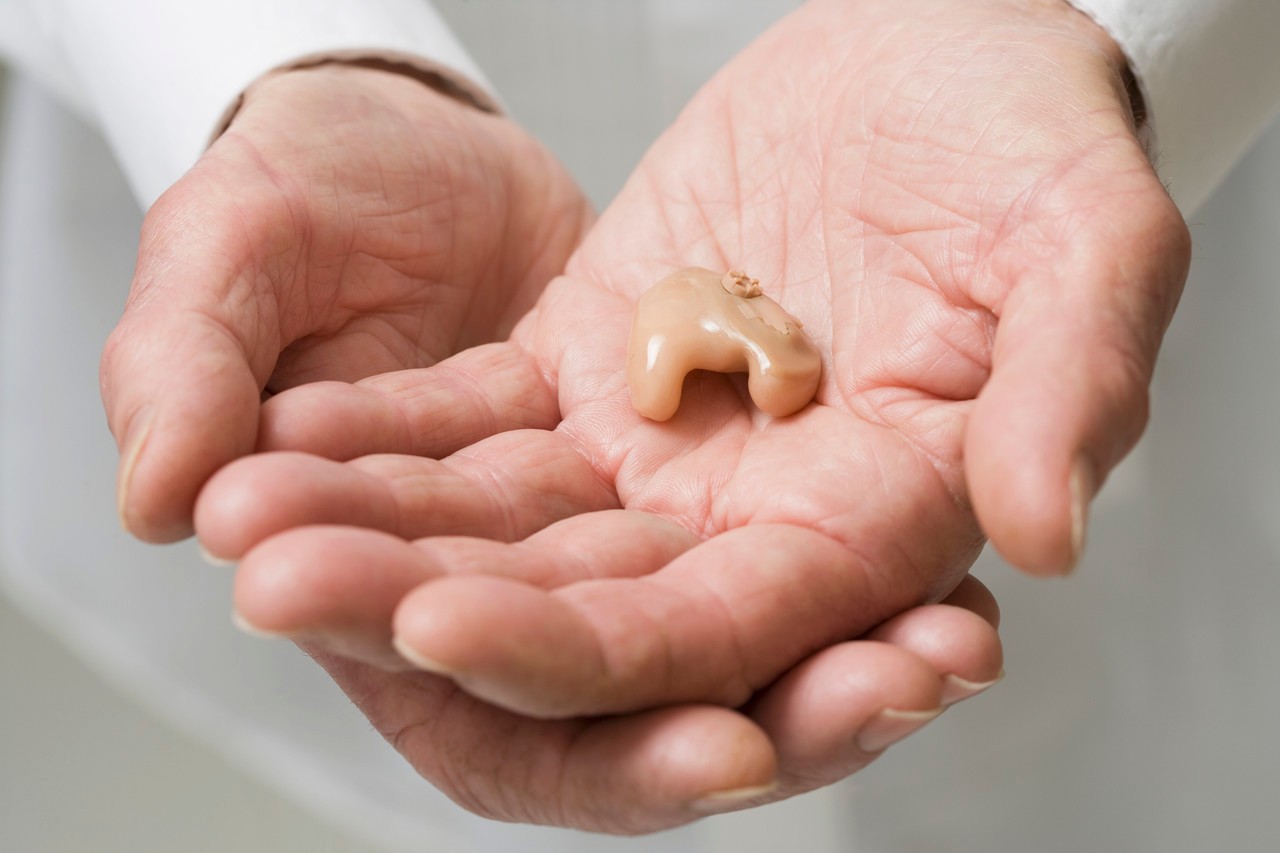Why You Should Get Hearing Aids

The markup is annoying, but hearing well isn’t a luxury.
Tens of millions of people suffer from hearing loss, putting up with it or barely noticing a decline over time. As little as 14 percent of Americans age 50 and up who could use hearing aids actually do, leaving about 23 million untreated, according to one estimate. By age 75 and up, half the population has disabling hearing loss. Young people have problems, too. An estimated 15 percent of Americans between the ages of 20 and 69 have lost some of their hearing from exposure to noise.
When we miss honking horns and urgent knocks on the door, untreated hearing loss is dangerous. But the dangers can be less noticeable. People with mild, moderate, and severe hearing loss have a two, three, and five-fold increased chance of developing dementia, respectively, notes Johns Hopkins ear-nose-and throat researcher Frank Lin, MD, PhD. Hearing aids may also help keep elders from falling, a small 2015 study reported.
Isolation is another danger. Most age-related hearing loss occurs in the high-frequency ranges. In English, these tend to contain the consonants, which makes it easy to confuse, say, "bat" with "cat." So you think your spouse is mumbling, when you’re the problem. In one study, about two-thirds of people living with a hearing-impaired partner complained that their conversations had suffered. Another bad sign is when high-pitched grandkids grate on your nerves.
You may worry that a hearing aid will make you look or feel old. But misunderstanding conversations isn’t flattering either — once you’re past a certain age, people suspect you of marble-loss. Hearing loss tends to make us talk too loudly and dominate conversations because it’s easier to talk than listen. Over time, friends retreat. Spouses often end up feeling socially isolated, too, a study literature review found.
Ask yourself:
- Do you often ask people to repeat what they say?
- Have trouble hearing in groups?
- Think others mumble?
- Fail to hear someone talking from behind you?
- Turn up the volume on the TV or car radio?
- Have difficulty on the phone?
- Have trouble hearing your alarm clock?
- Have difficulty hearing at the movies?
- Dislike, or dread noisy parties and restaurants?
- Fail to hear a dripping faucet or high notes of violins?
For a quick test, iPhone owners can download the free ap, uHear. But it’s important to get checked by a doctor, since you may need wax removed, or in rare cases, could have a tumor in the middle or inner ear.
Absurdly, the cost of hearing aids isn’t covered by Medicare and other insurers, though the Veterans Administration is doing the right thing. You can pay for a hearing aid with a pre-tax flexible spending account employee benefit. Buying one aid is better than none: although most people with loss in both ears do better with two aids, 10 to 20 percent may actually hear better with just one. Expect to pay at least $1,000 for an aid fitted by an audiologist and probably much more. If you buy two at standard prices, you’ll be spending some $4,000 to $6,000.
As the Baby Boomers age, it seems likely more entrepreneurs will chase a growing market and cut prices. Hearing aids are simpler devices than laptops. Based on the electronics alone, we shouldn’t need to pay more than perhaps $250 for one aid. Most of the cost comes from mark-ups to cover the time an audiologist spends with you. At the moment, you can’t typically pay an audiologist by the hour, but you can get a hearing test for free or a nominal sum. To save, consider Costco. Alternatives have sprung up online, where you’ll save even more, but they’re still “not easy for a first-timer,” says Ran Kohn, a hearing-aid wearer who blogs about his experiences and research at HearingWisdom.com.
Don’t fall into the trap of buying a hearing aid to please your wife or son and leaving it in the drawer. If your hearing loss is mild — and you’re retired and not often in restaurants or theaters — you might consider baby steps. “Personal sound amplifiers” help people hear things that are at a low volume or a distance — for example, children at the other end of the yard. Apps let you amplify sound with your smartphone and earbuds. Portable wireless devices and earphones make it easier to hear a TV or stereo. Consider amplified telephones and doorbells.
But if you know part of you would rather enjoy a quieter world… do not go gentle into that good night. Stay with us.
Updated:
March 20, 2020
Reviewed By:
Christopher Nystuen, MD, MBA